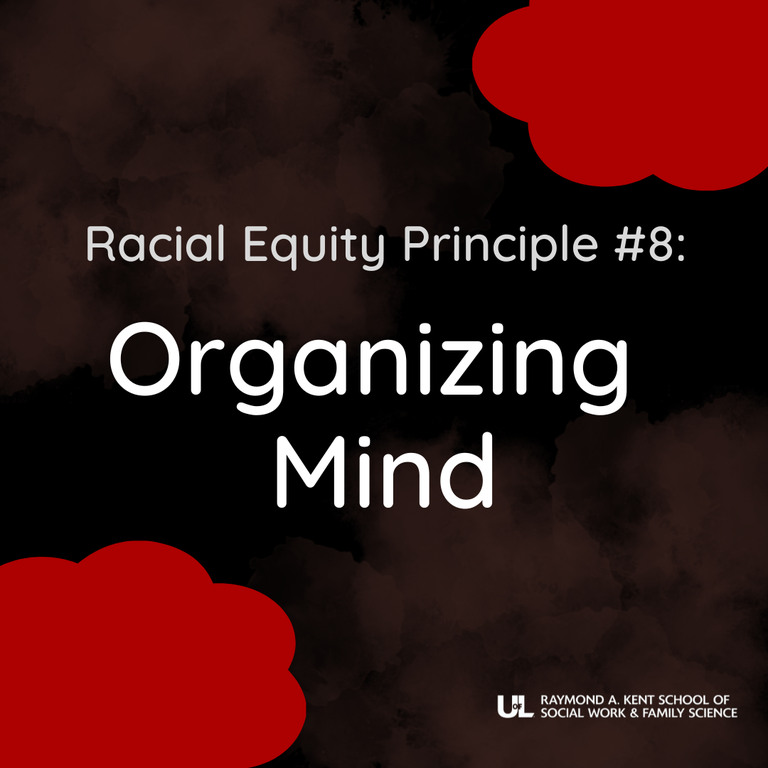DEI Racial Equity Principle of the Week: Principle #8

For the next several weeks we will be sharing 1 of 10 Racial Equity Principles created through the work of several grassroots organizations, most notably the Dismantling Racism Works collaborative, and curated by Tema Okun. Each Racial Equity Principle includes a definition and description of how applying that principle may look in our daily lives. We encourage you to reflect on the description of each principle, how much you can relate to or see value in it, and to what extent you may want to apply any of the approaches suggested in your daily lives, inside and outside of the Kent School.
Racial Equity Principle #8 Organizing Mind
"This principle is grounded in the wisdom of experienced and effective community organizers. Organizing mind means that we begin by looking around to see who is with us, who shares our desires and our vision. We then build relationships with those people. So, for example, if we find one other person to work with, then the two of us find another 2 people, then the four of us find another 4 people and so on. Organizing mind is based on the idea of “each one reach one” (thank you Sharon Martinas) in ways that build relationships, community, solidarity, and movements. Organizing mind helps us to focus on who and what is within our reach so we can build a larger group of people with whom to work and play and fight for social justice.
This principle is closely tied to the writing of Stephen Covey (The Seven Habits of Highly Effective People, 1992), which is in turn based on the work of Viktor Frankl (Man’s Search for Meaning, 2006). Covey speaks to the importance of focusing on our circle of concern - what we can do something about - which helps us build our individual and collective power. Frankl, a Jewish psychotherapist, was imprisoned in a series of concentration camps during WWII and spent much of his time observing the behavior of his fellow prisoners and the Nazi prison guards. He noticed how some prisoners were more “free” than their guards because of how they used the space between what happened to them and how they chose to respond. Frankl went on to define that space as “freedom.”
Our circle of concern includes the wide range of concerns that a person or community has, including everything from a (public) health problem like the Covid pandemic to the threat of losing a job or a loved one (what happens to us). The circle of influence focuses us on those concerns that we can do something about (how we choose to respond). Proactively focusing on our circle of influence magnifies it; as a result our power and effectiveness build. Reactively focusing on concerns that are not within our circle of influence, on what’s not working or on what others can or should be doing, makes us much less effective. It can also encourage us to blame and/or wait for others to change before we act, which leads to a sense of frustration and powerlessness. The connection to organizing mind is that too often we focus our efforts on people who are too far away from us (our circle of concern) rather than on those who are closer who we haven’t yet organized to work with us (our circle of influence). When people complain that “we’re preaching to the choir,” our response is “yes, we need to start organizing the choir.” When people complain about the apathy or disinterest of those we are trying to reach, this is often a sign we are too focused on who is not yet with us and we need to refocus on who is, even if it’s only one or two other people."
Retrieved from: https://www.whitesupremacyculture.info/racial-equity-principles.html
